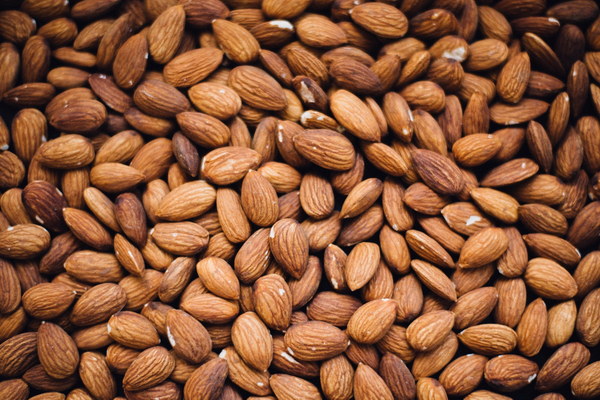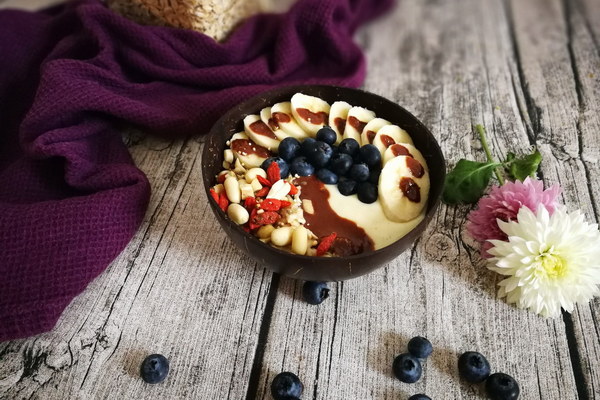Unlocking the Wisdom of Traditional Chinese Medicine A Beginner's Guide to Creating a Healthful Diet
Embarking on a journey into the realm of traditional Chinese medicine (TCM) can be both enlightening and transformative. One of the fundamental aspects of TCM is the emphasis on maintaining a harmonious balance within the body through diet. Learning how to create a TCM-inspired healthful diet is a skill that can enhance your well-being and vitality. Here’s a comprehensive guide to help you start your journey.
Understanding the Basics of TCM Nutrition
Traditional Chinese medicine has been practiced for thousands of years, and its dietary principles are deeply rooted in the concept of Yin and Yang, the interplay of opposing forces that must be balanced for optimal health. Here’s how to start integrating these principles into your diet:
1. Identify Your Body Type: TCM divides individuals into different body types, such as yang, yin, and the six constitutions. Knowing your body type helps you choose the right foods that will balance your internal energy, or Qi.
2. Seasonal Eating: TCM emphasizes the importance of consuming foods that are in harmony with the seasons. For instance, winter is the season of the kidneys, and foods like kidney beans, black sesame seeds, and goji berries are recommended to support kidney health.
3. Food Energetics: Each food has its own energy, known as Wei Qi, which can either balance or disrupt the body’s energy. Learn about the properties of different foods, such as their cooling, warming, drying, or moistening qualities, to tailor your diet to your needs.
Creating Your TCM-Inspired Diet
Once you have a basic understanding of TCM nutrition, you can start creating a diet that supports your health and well-being. Here are some steps to get you started:
1. Assess Your Current Diet: Take an honest look at your current eating habits. What foods do you enjoy? What nutrients might you be lacking? This assessment will help you identify areas for improvement.

2. Plan Your Meals: Use a meal planner to map out your weekly meals. Incorporate a variety of foods that align with your body type and the season. For example, a spring meal might include asparagus, leafy greens, and oranges.
3. Balance Your Meals: Aim for a balance of the five flavors—sour, bitter, sweet, pungent, and salty—each of which is associated with different organs and can help maintain their health.
4. Cook with intention: The way you prepare your food can also impact its properties. Steaming, boiling, and simmering are considered more yin and are better for cooling the body, while grilling and frying are more yang and can warm the body.
Sample TCM-Inspired Meal Plan
Here’s a sample meal plan that incorporates TCM principles:
Breakfast:
- Oatmeal with goji berries and a drizzle of honey (for a yin-balancing breakfast)
- Green tea (to aid digestion)
Lunch:
- Quinoa salad with roasted vegetables, lemon juice, and olive oil (for a balanced, nutrient-rich meal)
- A small serving of tofu or tempeh (to support kidney health)
Snack:
- Apple slices with almond butter (for a sweet and nutritious snack)
Dinner:
- Stir-fried chicken with broccoli and carrots (for a meal that supports the liver)
- Brown rice (to balance the meal and provide sustained energy)
Supper:
- Warm milk with a pinch of ginger (for a soothing bedtime drink)
Tips for Success
- Stay Informed: Keep learning about TCM and its dietary principles. There are many resources available, including books, online courses, and workshops.
- Listen to Your Body: Pay attention to how different foods make you feel. Adjust your diet as needed based on your body’s reactions.
- Be Patient: Creating a TCM-inspired diet is a gradual process. Give yourself time to adjust to new foods and flavors.
By embracing the wisdom of traditional Chinese medicine and incorporating its dietary principles into your daily life, you can embark on a journey to improved health and well-being. Remember, the key to success is balance, both in your diet and in your life.









